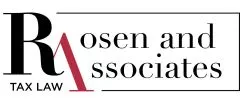- within Media, Telecoms, IT and Entertainment topic(s)
In the case of 792391 Canada Inc. v The King (2023 TCC 37), the Tax Court of Canada determined that under Part XIII of the Income Tax Act (ITA), a tenant is liable for failing to withhold taxes on rental payments made to a non-resident landlord, even if the tenant was unaware of the landlord's non-resident status for Canadian tax purposes. This ruling underscores the importance for tenants to verify the residency status of their landlords from the outset to avoid significant tax liabilities.
In this case, the Appellant, 792391 Canada Inc, entered into a lease agreement for commercial property with Anjar Investments Ltd in May of 1996. Subsequently, without the Appellant's knowledge, Anjar sold the property to Trimarchi in 2006. The Appellant, oblivious to the transfer, signed a three-year lease with Trimarchi as the landlord in 2010. Consequently, between 2011 to 2016, the Appellant paid rent to Trimarchi without withholding the requisite Part XIII tax. The Appellant claimed he was unaware that Trimarchi was a non-resident of Canada. However, the Minister assessed the Appellant under subsection 215(6) for failing to withhold and remit Part XIII tax on the rental income paid to Trimarchi during the 2011 to 2016 tax years, including interest and penalties, on the grounds that Trimarchi was a non-resident.
Understanding Part XIII of the ITA
Part XIII of the ITA imposes taxes on certain types of income paid to non-residents by Canadian residents. To enforce this provision, Canadian residents who make payments to non-residents are required to withhold and remit the appropriate tax amounts. Under subsection 215(6), a tenant who fails to do so is liable for the tax, as well as any associated penalties and interest.
Court's Decision
The Appellant argued for relief under a due diligence defense for Part XIII liability. However, the court found that the Appellant did not demonstrate sufficient diligence. The court clarified that subsection 215(6) does not require the payer to know that the payee is a non-resident. Therefore, once it was determined that Trimarchi was a non-resident, the Appellant was held liable for failing to withhold and remit the Part XIII tax on the rent paid, alongside penalties and interest.
Implications for Tenants
This ruling emphasizes the importance for tenants, whether commercial or residential, to exercise caution when entering into lease agreements. In circumstances where a landlord's residency status is unclear, tenants should conduct their due diligence to confirm the landlord's residency status. Failure to do so can result in substantial financial liabilities, as demonstrated in this case.
It is recommended that tenants:
- Verify Landlord's Residency: Tenants must verify their landlord's residency status at the outset of the lease agreement to avoid potential tax liabilities.
- Withhold and Remit Taxes: If the landlord is a non-resident, tenants must withhold and remit the appropriate taxes under Part XIII of the ITA to avoid penalties and interest.
- Due Diligence is Crucial: Tenants cannot rely on a lack of knowledge or ignorance of the landlord's residency status as a defense. Proactive due diligence is necessary to ensure tax compliance.
Conclusion
The case of 792391 Canada Inc. v The King serves as a critical reminder for tenants to exercise vigilance regarding their landlords' tax residency status, thereby averting unforeseen tax liabilities and ensuring adherence with Canadian tax legislation.
The content of this article is intended to provide a general guide to the subject matter. Specialist advice should be sought about your specific circumstances.
[View Source]


